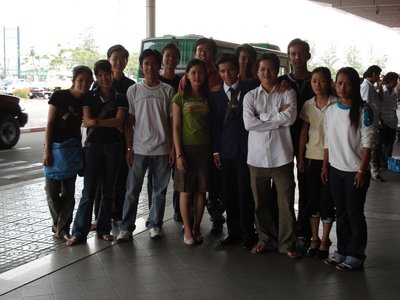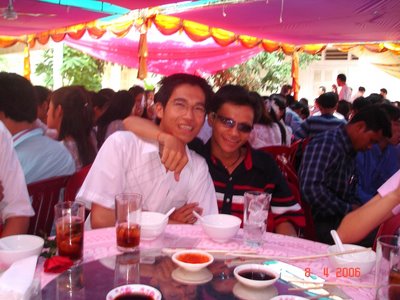Scare stories about global warming may end up justifying policies that hurt the economy without much curbing of greenhouse gases.
By Robert J. Samuelson Newsweek
Nov. 13, 2006 issue - It seems impossible to have an honest conversation about global warming. I say this after diligently perusing the British government's huge report released last week by Sir Nicholas Stern, former chief economist of the World Bank and now a high civil servant. The report is a masterpiece of misleading public relations.
It foresees dire consequences if global warming isn't curbed: a worldwide depression (with a drop in output up to 20 percent) and flooding of many coastal cities. Meanwhile, the costs of minimizing these awful outcomes are small: only 1 percent of world economic output in 2050.
No sane person could fail to conclude that we should conquer global warming instantly, if not sooner. Who could disagree? Well, me. Stern's headlined conclusions are intellectual fictions. They're essentially fabrications to justify an aggressive anti-global-warming agenda. The danger of that is we'd end up with the worst of both worlds: a program that harms the economy without much cutting of greenhouse gases.
Let me throw some messy realities onto Stern's tidy picture. In the global-warming debate, there's a big gap between public rhetoric (which verges on hysteria) and public behavior (which indicates indifference). People say they're worried but don't act that way. Greenhouse emissions continue to rise despite many earnest pledges to control them. Just last week, the United Nations reported that of the 41 countries it monitors (not including most developing nations), 34 had increased greenhouse emissions from 2000 to 2004. These include most countries committed to reducing emissions under the Kyoto Protocol.
Why is this? Here are three reasons.
First: With today's technologies, we don't know how to cut greenhouse gases in politically and economically acceptable ways. The world's 1,700 or so coal-fired power plants—big emitters of carbon dioxide, the main greenhouse gas—are a cheap source of electricity. The wholesale cost is 4 to 5 cents a kilowatt hour, says the World Resources Institute. By contrast, solar power is five to six times that. Although wind is roughly competitive, it can be used only in selective spots. It now supplies less than 1 percent of global electricity. Nuclear energy is cost-competitive but is stymied by other concerns (safety, proliferation hazards, spent fuel).
Second: In rich democracies, policies that might curb greenhouse gases require politicians and the public to act in exceptionally "enlightened" (read: "unrealistic") ways. They have to accept "pain" now for benefits that won't materialize for decades, probably after they're dead. For example, we could adopt a steep gasoline tax and much tougher fuel-economy standards for vehicles. In time, that might limit emissions (personally, I favor this on national-security grounds). Absent some crisis, politicians usually won't impose—and the public won't accept—burdens without corresponding benefits.
Third: Even if rich countries cut emissions, it won't make much difference unless poor countries do likewise—and so far, they've refused because that might jeopardize their economic growth and poverty-reduction efforts. Poorer countries are the fastest growing source of greenhouse emissions, because rapid economic growth requires energy, and present forms of energy produce gases. In 2003, China's carbon-dioxide emissions were 78 percent of the U.S. level. Developing countries, in total, accounted for 37 percent of greenhouse-gases emissions in 2003. By 2050, their share could be 55 percent, projects the International Energy Agency.
The notion that there's only a modest tension between suppressing greenhouse gases and sustaining economic growth is highly dubious. Stern arrives at his trivial costs—that 1 percent of world GDP in 2050—by essentially assuming them. His estimates presume that, with proper policies, technological improvements will automatically reconcile declining emissions with adequate economic growth. This is a heroic leap. To check warming, Stern wants annual emissions 25 percent below current levels by 2050. The IEA projects that economic growth by 2050 would more than double emissions. At present, we can't bridge that gap.
The other great distortion in Stern's report involves global warming's effects. No one knows what these might be, because we don't know how much warming might occur, when, where, or how easily people might adapt. Stern's horrific specter distills many of the most terrifying guesses, including some imagined for the 22nd century, and implies they're imminent. The idea is to scare people while reassuring them that policies to avert calamity, if started now, would be fairly easy and inexpensive.
We need more candors. Unless we develop cost-effective technologies that break the link between carbon-dioxide emissions and energy use, we can't do much. Anyone serious about global warming must focus on technology—and not just assume it. Otherwise, our practical choices are all bad: costly mandates and controls that harm the economy; or costly mandates and controls that barely affect greenhouse gases. Or, possibly, both.














